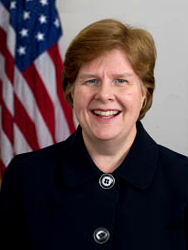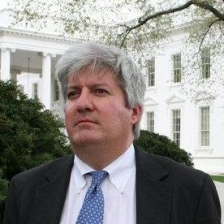
A minimum wage is the lowest remuneration that employers can legally pay their workers. Equivalently, it is the price floor below which workers may not sell their labor. Although minimum wage laws are in effect in many jurisdictions, differences of opinion exist about the benefits and drawbacks of a minimum wage. Supporters of the minimum wage say it increases the standard of living of workers, reduces poverty, reduces inequality, and boosts morale. In contrast, opponents of the minimum wage say it increases poverty, increases unemployment and is damaging to businesses, because excessively high minimum wages require businesses to raise the prices of their product or service to accommodate the extra expense of paying a higher wage and some low-wage workers "will be unable to find work...[and] will be pushed into the ranks of the unemployed."

Economic inequality covers a wide variety of topics. It can refer to either income distribution or the distribution of wealth,.

The Tax Foundation is a Washington, D.C.-based think tank, founded in 1937, that collects data and publishes research studies on U.S. tax policies at both the federal and state levels. The Foundation's stated mission is to "improve lives through tax policy research and education that leads to greater economic growth and opportunity." The Tax Foundation is organized as a 501(c)(3) tax-exempt non-profit educational and research organization.

The Economic Policy Institute is a 501(c)(3) non-profit American think tank based in Washington, D.C. that carries out economic research and analyzes the economic impact of policies and proposals. The EPI describes itself as a non-partisan think tank that "seeks to include the needs of low- and middle-income workers in economic policy discussions". It is affiliated with the labor movement, and is usually described as presenting a liberal viewpoint on public policy issues. The EPI has a sister organization, the EPI Policy Center, which is a 501(c)(4) organization for advocacy and education. The EPI advocates for policies favorable for low- to moderate-income families in the United States. The EPI also assesses current economic policies and proposes new policies that EPI believes will protect and improve the living standards of working families.
Mincome was an experimental Canadian guaranteed annual income project that was held in Manitoba, during the 1970s. The project was funded jointly by the Manitoba provincial government and the Canadian federal government under Prime Minister Pierre Trudeau. It was launched with a news release on February 22, 1974, under the New Democratic Party government of Edward Schreyer, and was closed down in 1979 under the Progressive Conservative government of Sterling Lyon and the federal Progressive Conservative Party of Joe Clark. The purpose of this experiment was to assess the social impact of a guaranteed, unconditional annual income, including whether a program of this nature would cause disincentives to work for the recipients and how great such a disincentive would be.
The Center on Budget and Policy Priorities (CBPP) is a progressive American think tank that analyzes the impact of federal and state government budget policies. A 501(c)(3) nonprofit organization, the Center's stated mission is to "conduct research and analysis to help shape public debates over proposed budget and tax policies and to help ensure that policymakers consider the needs of low-income families and individuals in these debates."
Martin Bronfenbrenner was an internationally renowned economist who published over 250 scholarly papers and five books and served as William R. Kenan, Jr. Professor Emeritus of Economics at Duke University. His publications cover a host of topics, including aggregate economics, income distribution, international economics, and Japan. His scholarship was recognized on several occasions, including his election as Fellow of the American Academy of Arts and Sciences, and as a Distinguished Fellow of the American Economic Association.

Wilson Allen Wallis was an American economist and statistician best known for serving as president of the University of Rochester. The Kruskal–Wallis one-way analysis of variance is named after him and William Kruskal.
George Jesus Borjas is an American economist and the Robert W. Scrivner Professor of Economics and Social Policy at the Harvard Kennedy School. He has been described as "America’s leading immigration economist" and "the leading sceptic of immigration among economists". He has been described as an "immigration skeptic". Borjas has published a number of studies that show that immigration adversely affects low-skilled natives, a proposition that is debated among economists.
In economics, a negative income tax (NIT) is a welfare system within an income tax where people earning below a certain amount receive supplemental pay from the government instead of paying taxes to the government.

Christina Duckworth Romer is the Class of 1957 Garff B. Wilson Professor of Economics at the University of California, Berkeley and a former Chair of the Council of Economic Advisers in the Obama administration. She resigned from her role on the Council of Economic Advisers on September 3, 2010.

A Basic Income, also called Universal Basic Income (UBI), Citizen's Income (CI), Citizen's Basic Income (CBI), Basic Income Guarantee (BIG), or Universal Demogrant, is a periodic cash payment delivered to all on an individual basis, without means test or work requirement. The incomes would be:

Rebecca M. Blank is the current chancellor of the University of Wisconsin-Madison and former Acting United States Secretary of Commerce. Blank was serving as United States Deputy Secretary of Commerce when she was named to lead the United States Department of Commerce as Acting Secretary on June 11, 2012 upon the request of Secretary of Commerce John Bryson, who took a medical leave of absence, and subsequently resigned as Secretary. She had held the role of Deputy Secretary since October 21, 2011. Blank was previously the Acting Secretary from July 2011 until October 2011, following the appointment of Gary Locke as United States Ambassador to China. A native of Missouri, Blank is a summa cum laude graduate in economics from the University of Minnesota and holds a Ph.D. in economics from the Massachusetts Institute of Technology. On March 18, 2013, she was recommended for the position of Chancellor at the University of Wisconsin–Madison.

Thomas Amadeus Kalil is an expert on technology and innovation policy, and Deputy Director for Policy for the White House Office of Science and Technology Policy. He is also the Senior Advisor for Science, Technology and Innovation for the United States National Economic Council.

The economic policies of Donald Trump, which were outlined in his campaign pledges, include trade protectionism, immigration reduction, individual and corporate tax reform, the dismantling of the Dodd–Frank Wall Street Reform and Consumer Protection Act, and the repeal of the Patient Protection and Affordable Care Act ("Obamacare").
Michael A. Stoll is an American economist and professor of public policy in the Luskin School of Public Affairs at the University of California, Los Angeles. He is also a fellow at the American Institutes for Research, the Brookings Institution, the Institute for Research on Poverty at the University of Wisconsin–Madison, and the National Poverty Center at the University of Michigan, Ann Arbor. He is known for his research on incarceration in the United States, including the 2013 book Why Are So Many Americans in Prison?, co-authored with Steven Raphael. The book argues, among other things, that the United States' incarceration rate is so high mainly because of changes in crime policy, not crime rates. His work on this topic was cited by the Obama administration in an April 2016 report on criminal justice reform. He has also studied migration within the United States by Americans in general and American retirees specifically.
The Institute for Research on Poverty is a nonprofit, nonpartisan research institute at the University of Wisconsin–Madison dedicated to studying poverty and economic inequality. It was established in March 1966, as a result of an agreement between UW–Madison and the Office of Economic Opportunity. It is the oldest center for poverty research still active in the United States, and had over 150 faculty affiliates from universities across the United States.
Brian G. Knight is an economics professor at Brown University, as well as a research associate at the National Bureau of Economic Research. He received his B.S. from Miami University in 1992, and his Ph.D. from the University of Wisconsin–Madison in 2000, under the supervision of Arik Levinson.
Basic income and negative income tax, which is a related welfare system, has been debated in the United States since the 1960s, and to a smaller extent also before that. During the 1960s and 1970s a number of experiments with negative income tax were conducted in United States and Canada. In the 1970s another and somewhat related welfare system was introduced instead, the Earned Income Tax Credit. The next big development in the history of basic income in the United States came 1982, when The Permanent Fund of Alaska was established. It has delivered some kind of basic income, financed from the states oil and gas revenues, ever since.

Jason A. Crow is an American attorney, veteran and politician who is a member of the United States House of Representatives for Colorado's 6th congressional district. He is a member of the Democratic Party. The district includes most of Denver's eastern suburbs, such as Aurora, Littleton and Centennial.
















